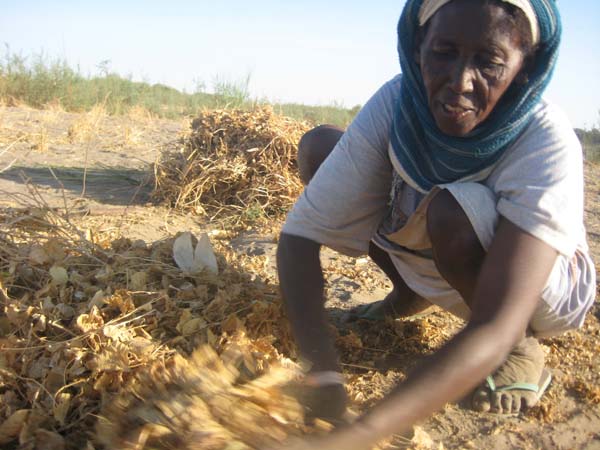A delegation from the northern Sudanese village of Selem visits the mayor's office to complain of services in their village. July 2008.
It's a flashy headline, but a question that some people are legitimately asking themselves. Could there be a rebellion in the north, as there was in Darfur, to the west?
The answer depends on who you ask.
Northerners certainly complain of marginalization. They say they are worse off than Darfur, in fact.
"We should have taken up arms before the Darfurians," one village leader told me, "because we are in more need. But our values don't allow us to use violence."
I heard that line many times during my time in villages of the Nubian desert. "We are peaceful people. Rebellion is not the answer."
That's not to say northerners are happy about their situation. Many of them live without clean water or electricity; they've had to build their schools and health clinics themselves; and they lack any economic opportunities in their villages. But many seem to feel powerless to do anything about it. "What can we do?" they often ask.
If you ask government officials, the answer is certainly no. The idea of a rebellion in the north is something they brush off easily, almost as if to say, "Don't be silly; that would never happen."
But it is exactly this kind of quick dismissal that angers northerners, who seem to have been forgotten among Sudan's many other problems.
Ask analysts, and people who have worked in Sudan for years, and the answer is more ambiguous.
One UN official who studies risk management said the Northern State could easily be the next problem spot. Until now, the region has not received much attention, but he said it should be studied before it explodes. Darfur, the south, the east have all rebelled due to perceived marginalization. "It's like when you try to stop a bush fire. You think you've stopped it and then it pops up in another area. There aren't many there areas it can pop up in Sudan, except Northern State." They may be peaceful people, he told me, but they've seen that in the west, the east, and the south, people got something out of rebellion. "When their backs are up against the wall…" He didn't need to finish his sentence.
Some northerners have told me the only thing stopping them from rebellion is the landscape of their region. The desert is not exactly the best place to wage war. "The problem with the northerners is that they don't have a forest," one university graduate told me. "If they had forests, they would have carried weapons." Others have pointed to a lack of financial and weapons support as the problem. "Who would back a northern rebellion?" one analyst asked. Certainly not Egypt.
Ironically, the northerners most likely to rebel are angry with the government not because of a lack of development, but because of the planned construction of a dam in their area, which would increase the country's electricity flow. But the dam would also flood some of their ancestral homelands and force them to relocate. One man, who says he heads a group called the Kush Liberation Movement – hard to know how large or small it is – has threatened armed action if the Kajbar Dam project goes ahead. The government says it surely will.
And so it's hard to say whether rebellion in the north is a real possibility. But in a country torn apart by civil war for close to its entire independent existence, is it worth the risk?




